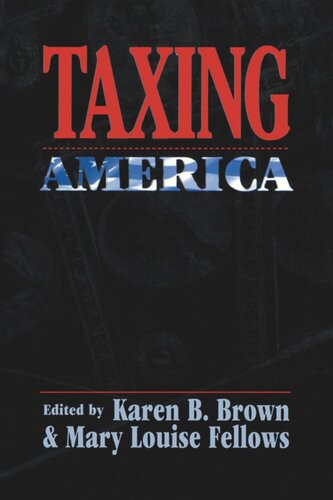

Most ebook files are in PDF format, so you can easily read them using various software such as Foxit Reader or directly on the Google Chrome browser.
Some ebook files are released by publishers in other formats such as .awz, .mobi, .epub, .fb2, etc. You may need to install specific software to read these formats on mobile/PC, such as Calibre.
Please read the tutorial at this link: https://ebookbell.com/faq
We offer FREE conversion to the popular formats you request; however, this may take some time. Therefore, right after payment, please email us, and we will try to provide the service as quickly as possible.
For some exceptional file formats or broken links (if any), please refrain from opening any disputes. Instead, email us first, and we will try to assist within a maximum of 6 hours.
EbookBell Team

4.8
24 reviewsIn the winter of 1996, Steve Forbes--publisher, heir, and presidential candidate--captured the American imagination with his proposal for a flat tax. But while Mr. Forbes claimed that such a tax would level the economic playing field by eliminating countless loopholes and miles of red tape, his actual proposal betrayed such claims to fairness by overtaxing workers and undertaxing financial capital.
In the face of recent proposals for dramatic and far-reaching tax reform, Taxing America takes a critical look at the way the federal government collects its revenue and exposes the bias at the heart of a system which claims to be objective and fair. Contrary to traditional tax scholarship, these writers argue that an awareness of disability discrimination, economic exploitation, heterosexism, sexism and racism is crucial to any analysis of tax policy.
Gathering together essays whose topics range from federal housing policy to environmental clean-up costs to tax treaty policy making, Karen B. Brown and Mary Louise Fellows present a philosophy that is as simple as it is radical: economic arrangements contribute significantly to the creation of social hierarchies and the perpetuation of discrimination. Given this reality, Brown and Fellows maintain that the goal of the federal tax law should be social justice and the disruption of discriminatory and exploitative practices.